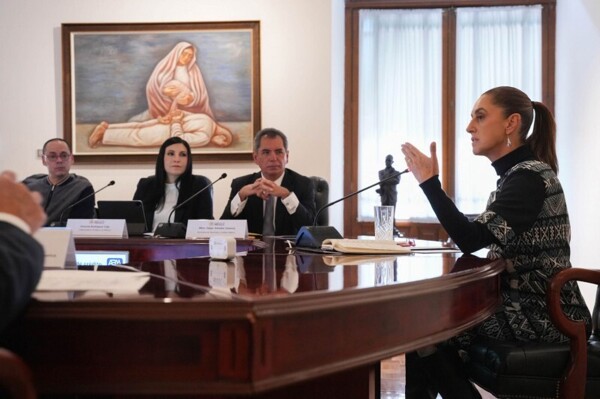
In January, inflation reached 3 percent and has been accumulating four consecutive months of increases in the annual rate, reflecting pressures in various areas. This phenomenon has become critical even before the commercial and fiscal measures proposed by President Trump are applied, and it is having repercussions globally.
Last January, inflation increased by 0.5 percent monthly, equivalent to an annual rate of 6.2 percent, while core inflation grew by 0.3 percent monthly, equivalent to 3.7 percent annually. Real rates stand at 5.7 percent annually with a benchmark rate of 9.5 percent.
Despite consumer inflation decreasing in Mexico, reaching 3.59 percent annually in January, this decline is primarily attributed to the collapse of non-core inflation. On the other hand, producer inflation in Mexico poses a risk, regardless of Trump 2.0 measures.
In the United States, inflation continues to rise with clearly inflationary economic policies driven by the president. Last January, cost inflation reached 7.86 percent annually, with additional pressures on supply chains and labor costs.
Trump's public policies could prolong the pause in the interest rate reduction cycle until inflation retreats. Geopolitical conflicts, climate change, and high electoral spending in more than 70 countries with presidential elections last year also influence the situation.
Bursamétrica warns that the United States is becoming a structural source of inflation, which, coupled with the impact of tariff measures, could result in higher imported inflation. All of this is leading the economy into the dangerous zone of stagflation.
Trump's policies will generate more investment in the United States, but will also exert pressure on the labor market and demand for goods and services, causing higher inflation. Mexico's economy, for its part, is in a growth situation with slight contraction, which together with other measures could result in a high fiscal deficit.
The increase in energy prices, a high level of real rates in Mexico, as well as upward pressures on products such as grains and perishable foods contribute to the inflationary situation. The expulsion of illegal immigrants could also limit agricultural supply and generate wage pressures.
In summary, the outlook shows a growing inflation scenario in various parts of the world, with both national and international factors influencing this upward trend.














